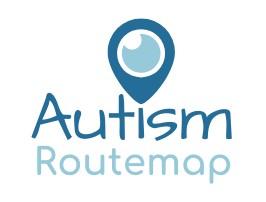How neurodiverse people can help others to understand their needs

For years, autistic / neurodiverse people have been asking why they should have to change to fit into society. And as voices are slowly being heard, there is a growing trend towards acceptance and embracing difference. Granted, we still have a long way to go but the tides are changing. Society, on the whole, is marching forwards.
When it comes to the workplace, UK law (Equality Act 2010) states that reasonable adjustments should be made to prevent discrimination of people with disabilities. At the core, this is humanity’s recognition of difference. And that awakening, leads us to respect and accommodate diverse needs. In other words, to develop a culture which says, “you’re OK and I’m OK”.
So, we’re improving in the workplace but what happens outside of work? An autistic / neurodiverse person doesn’t finish their working day at 5pm only to find themselves magically morphed, like Cinderella, into someone else. In the real world there is no “bippity boppity boo” – the same needs exist whether you are at work, at home or out and about.
Now when it comes to understanding the needs of others, us neurotypicals are often given more credit than we deserve. If we see someone in a wheelchair, we know that they need a ramp or a lift to get up an incline. In fact, we recognise this at lightning speed. We do not ever expect them to pop out of their wheelchair and walk up the stairs - wheelchair in hand.
But, when we can’t see the problem, we have much more difficulty understanding it. In these situations, we expect people to behave like us. What’s worse, is that we may mock, belittle, ignore or exclude them if they don’t.
Now, we can’t see the difficulties associated with autism. And this is where we get into sticky territory. This is a breeding ground for misunderstanding and distrust. This is where relationship rifts happen. And once we’re there, it can be tricky to get back onto an even keel.
But before you give up in a fit of despair, please know that there is a way out of this miry pit. And that journey happens through communication and education.
What us neurotypicals need, is help, to understand life from the perspective of an autistic / neurodiverse person. Yes, I know, neurotypicals are supposed to have this “standing in someone else’s shoes” knuckled down, but quite frankly, we often don’t get it. And that’s because we make assumptions based on our own perspectives.
So, reach for a different pair of glasses and ask the neurodiverse / autistic people in your life to explain their world. And if you are in the neurodiverse / autistic camp, please take time to educate the people around you. Don’t assume that they know. Not everyone will understand, but some will, and with each person that does, you will be changing the course of history.
In my next post, I’ll be sharing some of the common themes that cause division and what you can do to manage these issues. Because this is how you build successful relationships with the people in your life.
Til next time …

Linda Philips
MSc. Human Communication
Disclaimer
This blog post is for educational purposes and should not be taken as medical or therapeutic advice. If you need medical or therapeutic support, please consult your medical practitioner or therapist.
Linda empowers and equips people to communicate effectively, find freedom in their relationships and experience greater emotional well-being.
Whenever you’re ready, here are three ways I can help you:
- Grab a copy of: “Your guide to life after an adult autism diagnosis. Taking the next step into an empowered future!”
Use this guide to clarify how autism impacts you personally so you can:
- understand and clearly communicate your needs
- explain the diagnosis from your perspective
- take action to accommodate your needs and identify skills you want to develop
Click HERE to get your free copy
- Work with me directly
If you’re interested in working with me privately to fast track your progress in developing an emotionally healthy life and harmonious relationships, then I invite you to schedule a FREE call to discuss the options that are available.
Click HERE to book your call.
- Join our private Facebook group.
This is a place to connect with like-minded people to share challenges and solutions … and cheer each other on in your journey.
Click HERE to join

